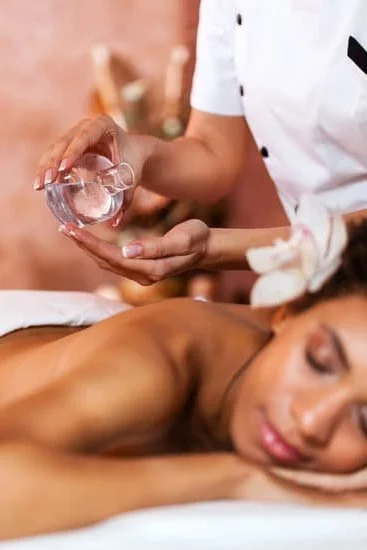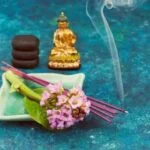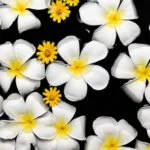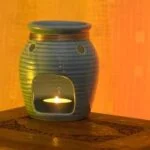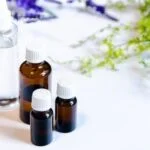Are you looking to dive into the world of aromatherapy and discover the benefits of essential oils? Look no further than the ultimate aromatherapy recipe book. Aromatherapy has been used for centuries to promote relaxation, improve mood, and address various health concerns. In this article, we will explore the fascinating world of aromatherapy, from its ancient origins to its modern-day applications.
Aromatherapy is a holistic healing treatment that uses natural plant extracts to promote health and well-being. Essential oils are the key ingredients in aromatherapy, and each oil has unique properties that can affect the body and mind in different ways. From stress relief and improved sleep to enhanced energy levels and mood enhancement, essential oils have a wide range of potential benefits.
In this introductory section, we will delve into the history of aromatherapy, exploring how ancient cultures used essential oils for healing and relaxation. We will also take a look at the science behind aromatherapy, examining how essential oils work on the body and mind to produce their therapeutic effects.
Additionally, we will provide a guide to selecting the best essential oils for your aromatherapy recipes, so you can create your own custom blends tailored to your specific needs. Whether you’re new to aromatherapy or a seasoned enthusiast, there’s something for everyone in this comprehensive exploration of the world of essential oils and their benefits.
The History of Aromatherapy
Early Beginnings
Aromatherapy has a rich history that dates back thousands of years. It originated in ancient civilizations such as Egypt, China, and India, where essential oils were used for medicinal and spiritual purposes. In Egypt, essential oils were extracted from plants and used in the embalming process as well as for healing ailments. The Chinese and Indian cultures also utilized aromatic plant extracts for their healing properties and believed in their ability to balance the body’s energies.
Ancient Practices
The use of essential oils in ancient cultures extended beyond medicinal purposes. They were also used in religious ceremonies, rituals, and even for personal grooming and beauty treatments. The Greeks and Romans also valued the therapeutic benefits of essential oils, using them in massage oils, perfumes, and in their bathhouses for relaxation and rejuvenation.
A Timeless Tradition
The tradition of aromatherapy has stood the test of time and continues to be embraced in modern wellness practices. Many of the principles of aromatherapy that were developed by ancient cultures are still relevant today. The history of aromatherapy serves as a testament to the profound impact that essential oils have had on human health and wellbeing throughout history.
As you explore the world of aromatherapy through an aromatherapy recipe book, it is important to understand its roots in ancient cultures and how they have shaped our current understanding of essential oils and their benefits for healing and relaxation.
The Science Behind Aromatherapy
Aromatherapy is a holistic healing treatment that uses natural plant extracts to promote health and well-being. The practice of aromatherapy has been around for centuries and continues to gain popularity in the modern world. Essential oils, the foundation of aromatherapy, are highly concentrated plant extracts that harness the therapeutic properties of various plants. These oils work their magic on both the body and mind, offering a wide range of benefits.
How Essential Oils Work
When inhaled or applied to the skin, essential oils can affect the limbic system, which is the part of the brain that controls emotions and memories. This explains why certain scents can evoke specific emotions or trigger certain memories. Additionally, essential oils are believed to have an impact on the nervous system by influencing neurotransmitters like serotonin and dopamine, which play a key role in regulating mood and emotion.
The Power of Aromatherapy
The science behind aromatherapy lies in its ability to stimulate the olfactory system (sense of smell) and influence various physiological functions within the body. Different essential oils have different therapeutic properties – some are known for their calming effects, while others are praised for their energizing or uplifting qualities. When used correctly, these powerful plant extracts can help reduce stress, alleviate anxiety, improve sleep quality, boost cognitive function, relieve pain, and even strengthen the immune system.
The Role of Chemistry
Chemistry also plays a crucial role in understanding how essential oils work. Each essential oil is comprised of a unique combination of chemical compounds that contribute to its specific aroma and therapeutic properties. For example, lavender oil contains linalool and linalyl acetate which possess sedative effects, making it an ideal choice for promoting relaxation and sleep. By studying the chemical composition of essential oils, we can gain valuable insight into how they interact with our bodies on a biochemical level.
As we delve deeper into the science behind aromatherapy, we gain a greater appreciation for the profound impact that these natural remedies can have on our physical and mental well-being. Understanding how essential oils work on both a biological and psychological level allows us to fully harness their potential for health and healing purposes.
Choosing the Right Essential Oils
When it comes to creating your own aromatherapy recipes, choosing the right essential oils is crucial in achieving the desired therapeutic effects. With a wide variety of essential oils available in the market, it can be overwhelming to know which ones to select for your specific needs. Here are some guidelines to help you choose the best essential oils for your aromatherapy recipes:
- Consider Your Desired Effects: Determine whether you are looking for oils to promote relaxation, uplift your mood, boost energy, relieve stress, or address specific health concerns. Different essential oils have unique properties and benefits, so identifying your desired effects will guide you in selecting the right ones for your recipes.
- Research the Properties of Essential Oils: Take the time to research and understand the properties of different essential oils. For example, lavender is known for its calming and soothing effects, while peppermint is invigorating and stimulating. This knowledge will help you make informed choices when creating blends for your aromatherapy recipes.
- Quality Matters: When choosing essential oils, opt for high-quality, pure, and organic options. Look for reputable brands that provide transparent information about their sourcing and production methods. High-quality essential oils ensure that you are getting potent and effective products for your aromatherapy recipes.
With these guidelines in mind, you can confidently select the best essential oils to incorporate into your aromatherapy recipes. Whether you are creating blends for relaxation, stress relief, energy enhancement, or overall wellbeing, understanding how to choose the right essential oils is an important step in harnessing the healing power of aromatherapy.
DIY Aromatherapy Recipes
Aromatherapy has been used for centuries as a natural way to promote relaxation, relieve stress, and improve overall wellbeing. Using essential oils derived from plants, aromatherapy is a holistic approach to healing and rejuvenation.
One of the best ways to explore the benefits of aromatherapy is by creating your own DIY blends at home. With the right essential oils and recipes, you can customize your aromatherapy experience to target specific needs such as stress relief, better sleep, increased energy, or mood enhancement.
When creating your own aromatherapy blends, it’s important to start with high-quality essential oils that are pure and free from synthetic additives. Look for oils that are 100% natural and organic to ensure their effectiveness and safety.
Some popular essential oils for stress relief include lavender, chamomile, and bergamot, while oils like cedarwood, frankincense, and clary sage are known for promoting relaxation and better sleep. To boost energy levels naturally, consider using invigorating oils such as peppermint, eucalyptus, or citrus blends.
To get started with DIY aromatherapy recipes, here are some simple blends you can try at home:
- Lavender & Chamomile Relaxation Blend: Mix 4 drops of lavender oil with 2 drops of chamomile oil in a diffuser before bedtime for a calming and restful atmosphere.
- Peppermint & Eucalyptus Energizing Blend: Combine 3 drops of peppermint oil with 3 drops of eucalyptus oil in a roller bottle with carrier oil for an energizing aroma that helps improve focus and concentration.
- Bergamot & Ylang Ylang Mood Enhancement Blend: Add 5 drops of bergamot oil and 3 drops of ylang ylang oil to a warm bath for a mood-boosting and uplifting experience.
Creating your own aromatherapy blends allows you to customize the scents that work best for you while reaping the therapeutic benefits of essential oils. By experimenting with different combinations and concentrations, you can find the perfect blend to support your mental and emotional wellbeing. For further inspiration on crafting personalized aromatherapy recipes, consider exploring various resources like books on aromatherapy recipe books that provide expert guidance on creating effective blends for different purposes.
Aromatherapy for Health and Wellness
Aromatherapy has been used for centuries to address common ailments and promote overall wellbeing. The use of essential oils in aromatherapy can offer a natural and holistic approach to health and wellness, providing relief from a variety of physical and emotional symptoms. From headaches and muscle pain to anxiety and insomnia, essential oils can be used to support the body in its healing process.
One of the key benefits of using aromatherapy for health and wellness is its ability to provide relief from everyday discomforts without the need for synthetic medications. For example, peppermint oil is often used to alleviate headaches, while lavender oil is known for its calming effects on the body and mind.
Additionally, eucalyptus oil can help with respiratory issues such as congestion and coughing. These essential oils, along with many others, can be blended together to create powerful aromatic remedies for a wide range of health concerns.
For those looking to incorporate aromatherapy into their wellness routine, creating a personalized blend of essential oils tailored to their specific needs can be incredibly beneficial. Aromatherapy recipe books are an excellent resource for discovering new blends and learning about the therapeutic properties of different essential oils. With step-by-step instructions and expert guidance, these books can empower individuals to take control of their health and explore the healing potential of aromatherapy.
| Common Ailment | Recommended Essential Oil |
|---|---|
| Headaches | Peppermint oil |
| Anxiety | Lavender oil |
| Congestion | Eucalyptus oil |
Aromatherapy for Self-Care
Creating a calming and replenishing aromatherapy routine at home can be a wonderful way to prioritize self-care and promote overall well-being. By incorporating the use of essential oils into your daily regimen, you can enjoy the benefits of relaxation, stress reduction, and emotional balance. Whether it’s through the use of diffusers, inhalers, or topical applications, aromatherapy has the potential to provide a soothing sanctuary within your own living space.
One simple way to start integrating aromatherapy into your self-care routine is by setting aside a specific time each day for a sensory experience. This could involve using lavender essential oil in a diffuser during meditation at the beginning or end of your day. Additionally, creating a relaxing bedtime ritual with chamomile or ylang ylang essential oils can help signal to your body that it’s time to wind down and prepare for sleep.
For those looking to take their aromatherapy self-care routine to the next level, having an array of DIY recipes at hand from an aromatherapy recipe book is essential for optimal results. Experimenting with different blends tailored to individual needs – whether it’s stress relief, energy boost, or mood enhancement – can help customize the perfect rituals for every occasion.
It’s important to note that while essential oils offer many benefits when used appropriately, it’s crucial to research and follow safety guidelines when creating and using homemade aromatherapy blends.
Incorporating aromatherapy into your self-care routine not only supports mental and emotional well-being but also encourages mindfulness and intentionality in everyday life. With the right tools such as an effective diffuser or rollerball application, along with a reliable source like an aromatherapy recipe book for guidance on blending techniques, harnessing the power of aroma can become an integral part of nurturing body and soul.
The therapeutic benefits of using essential oils as part of self-care practices are well-documented and continue to be a popular choice for individuals seeking natural approaches to holistic wellness.
| Aromatherapy Tip | Benefits |
|---|---|
| Create a calming nightly routine with chamomile or ylang ylang oil | Promotes relaxation and better sleep quality |
| Experiment with DIY blends from an aromatherapy recipe book | Customize blends tailored to individual needs such as stress relief or mood enhancement |
| Incorporate essential oils into daily rituals through diffusers or rollerball applications | Supports mental and emotional well-being while encouraging mindfulness in daily life |
The Ultimate Aromatherapy Recipe Book
In conclusion, the world of aromatherapy is a fascinating and beneficial one, offering numerous natural solutions for improving health and wellbeing. From its ancient origins to its modern applications, the use of essential oils has been proven to have positive effects on both the body and mind. With a better understanding of how aromatherapy works and how to choose the right essential oils, anyone can start creating their own DIY aromatherapy recipes at home.
Aromatherapy recipe books are a valuable resource for those looking to expand their knowledge and skills in using essential oils for various purposes. These books offer a wide range of 100% natural blends for stress relief, sleep, energy, mood enhancement, as well as addressing common ailments.
They also provide guidance on creating a relaxing and rejuvenating aromatherapy routine at home. With so many options available on the market, choosing the right aromatherapy recipe book can be overwhelming, but it’s worth taking the time to find one that suits your specific needs and interests.
Whether you are new to aromatherapy or have been practicing it for some time, having an aromatherapy recipe book in your collection can enhance your experience and promote overall wellbeing. It’s important to explore different books and their features to find the best fit for you. With the right resources at your disposal, you can unlock the full potential of essential oils and enjoy all the benefits they have to offer.
Frequently Asked Questions
What Are the 10 Best Essential Oils to Try for Aromatherapy?
The 10 best essential oils to try for aromatherapy include lavender, peppermint, tea tree, eucalyptus, lemon, rosemary, bergamot, chamomile, ylang-ylang, and geranium. Each oil has its own unique therapeutic properties.
How Do You Make Your Own Aromatherapy?
To make your own aromatherapy blends, you can start by choosing a carrier oil such as coconut or jojoba oil and then adding a few drops of your chosen essential oil. Be sure to research the proper dilution ratios and safety precautions.
What Is the Difference Between Essential Oils and Aromatherapy?
Essential oils are highly concentrated plant extracts while aromatherapy is the practice of using these oils for therapeutic purposes such as improving physical or mental well-being. Aromatherapy uses essential oils as part of holistic healing practices.

Are you looking for a natural way to improve your health and wellbeing?
If so, aromatherapy may be the answer for you.

